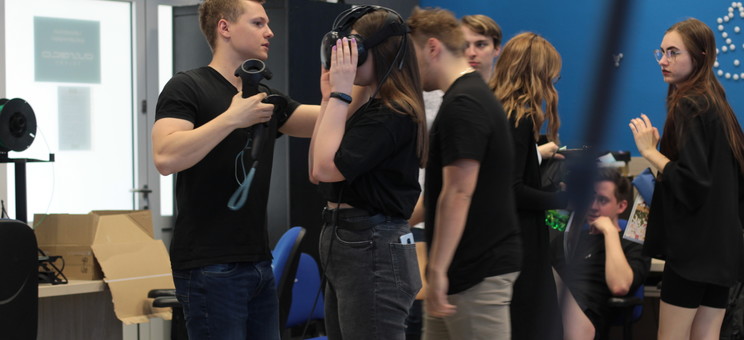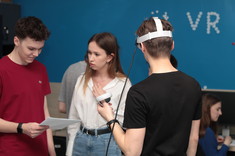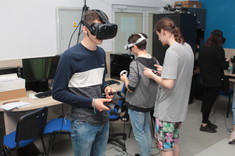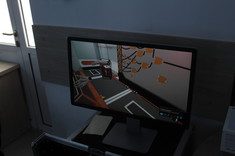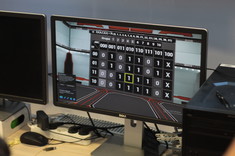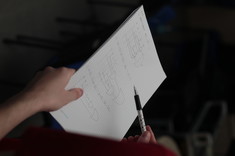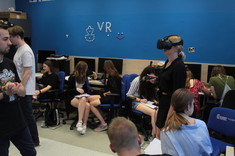During the 2020/2021 summer semester at The Faculty of Electrical and Computer Engineering, pilot classes were conducted on combining the Elements of Logic and Computer Arithmetic subject with virtual reality.
These are the first such classes in Poland in technical faculties.
As part of the RID (Regional Initiative of Excellence) grant project, employees and students of our Faculty developed and implemented from scratch a practical virtual science laboratory for the ELIAK subject.
The virtual laboratory consists of three stages - one for each laboratory topic, covering the issues carried out in the classroom in a traditional form.
Students have the following areas to complete:
- Boolean Algebra
- Karnaugh Map
- Multiplexers
In the first module, students build a working logic system using appropriate logic gates, ensuring consistency with the task requirements.
In the second module, students complete the Karnaugh map and then minimize it based on the given task.
In the third module, participants program a dedicated element for machine operation.
The task involves programming an 8:1 multiplexer using the appropriate number of input signals and logic gates.
With each sub-task, the difficulty level increases.
Although the modules are separate, the project maintains common elements, such as a board for building logic gates, a laser gun for selecting values in the Karnaugh map, and a logic gate spawner.
Students work in teams (two people) to develop collaboration skills under time constraints. The tasks are structured to test each participant's knowledge and promote teamwork.
The entire project is set in a scenario where students must address anomalies or hazards within a spaceship by solving logical challenges.
Between tasks, students encounter mini-games or logical puzzles for relaxation, such as throwing a ball at a target, shooting at robots, virtual jumps, or solving a mini-maze.
According to anonymous surveys conducted after the classes, students highly rated the implementation:
- Boolean Algebra: 9.28 / 10
- Karnaugh Maps: 9.41 / 10
- Multiplexers: 9.56 / 10
The project was conducted by two employees of the Department of Complex Systems: Andrzej Paszkiewicz, EngD and Mateusz Salach, M.Eng., along with three students of Computer Engineering at The Faculty of Electrical and Computer Engineering, Rzeszow University of Technology: Marcin Witek, M.Eng., Alicja Nikodem, and Hubert Wójcik. The primary game engine used for this project was Unreal Engine.
The use of VR in teaching at Rzeszow University of Technology is growing rapidly. From the winter semester, third-year students of Computer Engineering (specialization in Computer Networks) will participate in virtual reality system laboratories, where they will explore the secrets of VR.
This project is financed by the Minister of Education and Science of the Republic of Poland within the “Regional Initiative of Excellence” program for years 2019–2022. Project number 027/RID/2018/19, amount granted: 11,999,900 PLN.




